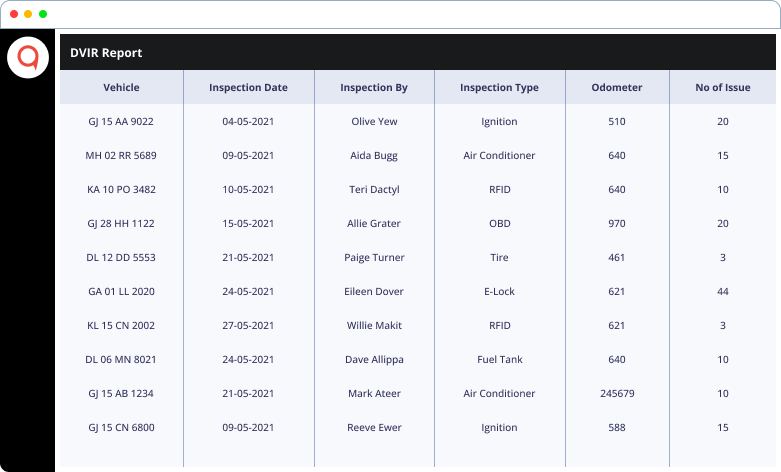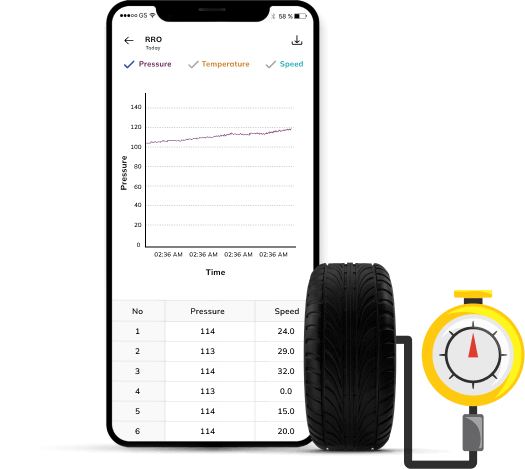Manage paperless and compliant fleet inspections with digital vehicle inspection.
Manage paperless and compliant fleet inspections with digital vehicle inspection.

Minimize downtime and reduce costs
Identify any issues with a vehicle before it hits the road.

Pre-trip and post-trip inspections in the driver app enable drivers to complete digital checklists before and after each trip. Firstly, it involves a systematic examination of the vehicle’s key components and systems to ensure they are in proper working condition. The purpose is to identify any potential problems or safety concerns that may affect the vehicle’s operation. During this process, the driver typically checks items such as tires, brakes, lights, mirrors, fluid levels, and other critical components. They meticulously mark items as “pass” or note defects, damages, and abnormalities. Furthermore, the software also allows drivers to attach photos or add comments to provide additional details about specific issues found during the inspection. This comprehensive approach enhances the documentation of the vehicle’s condition and facilitates effective communication regarding necessary repairs or maintenance.
Drivers can complete the vehicle inspection on a mobile device, such as a smartphone or tablet, in our driver app. This feature certainly allows them to perform inspections quickly and easily from anywhere. The convenience of mobile access enhances efficiency and encourages timely completion of inspections.
Certainly, our software provides customizable checklists. This empowers drivers to perform pre and post-trip inspections that precisely meet the specific needs of their fleet. Furthermore, the flexibility ensures that the inspection process aligns with the unique requirements and priorities of each fleet.
Fleet managers will indeed receive real-time notifications when a vehicle inspection is submitted. Moreover, this immediate notification feature allows them to respond promptly to any issues or defects identified during the inspection. Additionally, by staying informed in real time, managers can take swift and proactive measures to address concerns.
The software generates automated alerts when a vehicle fails an inspection or needs maintenance. This significantly helps fleet managers stay on top of maintenance needs and prevent accidents.
Get a detailed breakdown of each individual inspection. It evidently includes information about the inspected vehicle, the driver who conducted the inspection, the checklist items, and the inspection results (pass/fail).
Reports can be certainly customized and generated in tabular form and can further be downloaded in Excel or PDF formats for comparison.
Check out how our platform is helping companies in this field increase profits and productivity!
How does DVIR work in wavestechx?